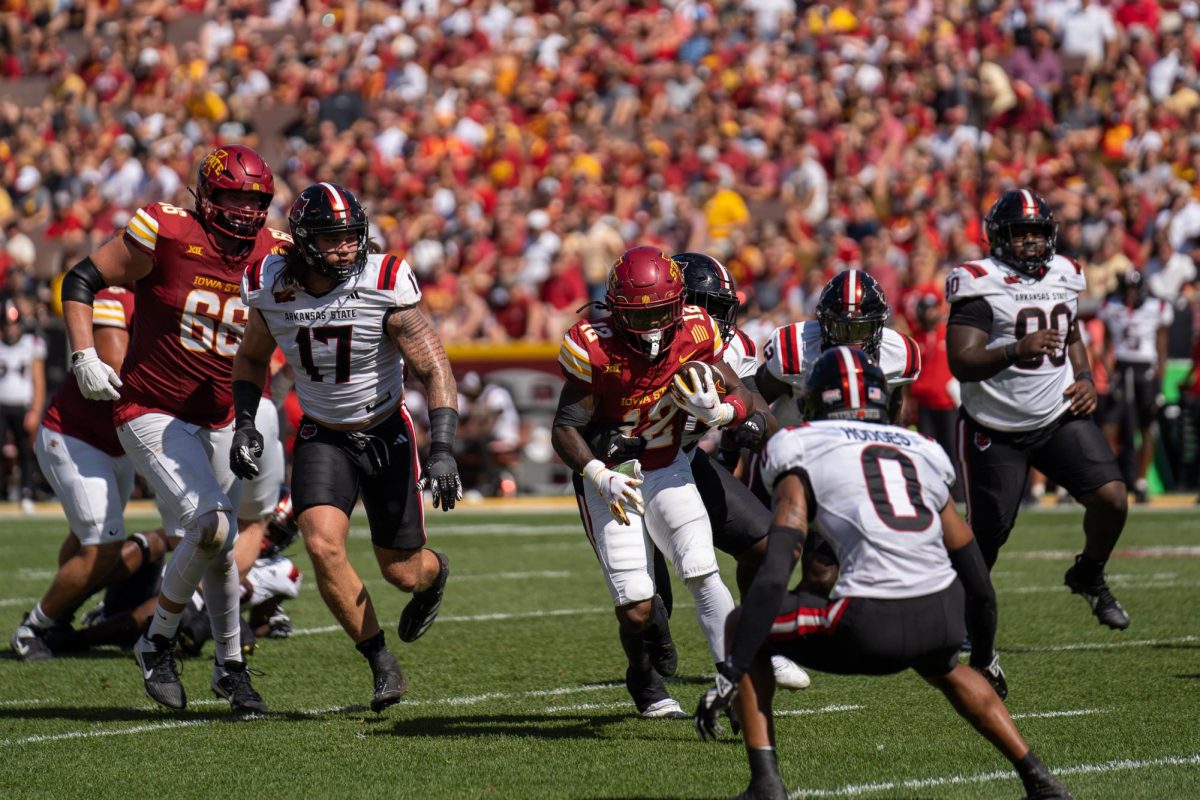In Retrospect
April 8, 1999
Editor’s note: In Retrospect features articles from significant points in the history of Iowa State. This article ran in the Iowa State Daily Student on Sept. 20, 1939, shortly after France and Great Britain declared war on Germany after Hitler invaded Poland. On Sept. 5, President Harry Truman declared U.S. neutrality in Europe.
Lush Marvels At Nonchalance Of Britons In War Atmosphere
Recounts Episodes Of Rescue From Athenia
By Florence Byrnes
Preparing for war as methodically as we prepare for winter is the way Dr. Jay L. Lush, professor in the animal breeding subsection, who has just returned from Europe, described the activities in England. Seeing the situation as a casual observer, Dr. Lush stated that all people in Europe knew about the war was what they read in the papers and even then the news sources couldn’t agree.
Expecting a long war, the citizens are not so frightened of aerial warfare as Americans might be led to believe. “There is no enthusiasm whatever concerning the war,” Dr. Lush said.
War Preparations
“The only preparations I saw were the building of a few air raid shelters, many sandbags and an unusual number of guns and soldiers,” asserted Dr. Lush.
Although he was in the war zone before the actual warfare began, Dr. Lush experienced a black-out drill in Berlin, Germany, in early August, when the German people were being told that they were to be attacked by hostile enemies, “just as they were told in 1914, and that they must be prepared to defend themselves bravely as they did then.”
Athenia Disaster
Reaching Glasgow on Friday night, Sept. 1, the returning travelers experienced two days of quiet sailing. Just after dark on Sunday, reported Dr. Lush, the ship received word of the Athenia disaster. Immediately swinging around, the “City of Flint,” with an American flag floodlighted at the stern, reached the wreck at 9 a.m. the next morning.
Some of the passengers had been picked up and already taken to Glasgow, and a Swedish yacht, the “Southern Cross,” transferred approximately 220 survivors to the “City of Flint.” Of the passengers, 6 to 10 were stretcher cases, about 100 were on the brink of exhaustion and the rest were able to help in the transfer of passengers, which took about 5 hours.
Night Clothes
Injuries ranged from sprained ankles and broken legs to skull fractures. None of them had saved any property; many had nothing but their night clothes. According to Lush, possibly one-fifth of the passengers had shoes. Praising the Swedish sailors, Dr. Lush recounted their generosity in supplying all the food and clothing they could spare. Another Swedish freighter sent food and blankets to aid.
After being radioed by the Southern Cross, two government coast guard cutters met the ship Saturday night after 6 days of sailing. The stretcher cases were transferred to the cutters, and for the first time since boarding, everyone had a blanket.
Water Limited
Although no real hardship was suffered, added Dr. Lush, water supplies were limited to drinking purposes only, no one being allowed to bathe and few clothes were washed. Food was rationed also, but Lush explained that no one went hungry. Blankets and beds were most missed by the survivors, but the first day aboard after picking up the Athenian survivors, everyone who could pitched in and helped build bunks in the unlighted holds.
Dr. Lush estimated that after one day on the ship two-thirds of the Athenians were moving about and after the second day all but 10 percent were able to assist in the emergency preparations.
Eat in Shifts
Mealtime was a long, drawn-out affair, for the dining room was so small that eight settings had to be made, attacking about three hours for each meal.
“Many tales were told about the sinking, but I think the most pathetic was that of a Czechoslovakian couple who had seen their two children killed in the wreck,” Lush related.
Another little girl was suffering from concussion of the brain, and as no serum and instruments were on board, the ship went off its course to meet a ship which had the necessary supplies. The little girl died the next morning. Her mother received word later that her little son was in Ireland, safe.
To New York
The “City of Flint” docked at Halifax Wednesday morning and nearly all the Athenians disembarked. Here food and supplies were taken on and the two days were spent in cleaning up the ship.
According to Dr. Lush, nearly all the survivors were destitute, and approximately two-thirds of them were women and children. Mostly Canadians and Americans, a few of the passengers were immigrants, with Czechs and Poles predominating, and at least one Greek and one German.
Docking in New York Friday night, Sept. 16, Dr. Lush came directly to Ames. Dr. Gowen was the only other Ames person aboard the “City of Flint.”
Daily staff writer Jamie Lange compiled this report.






